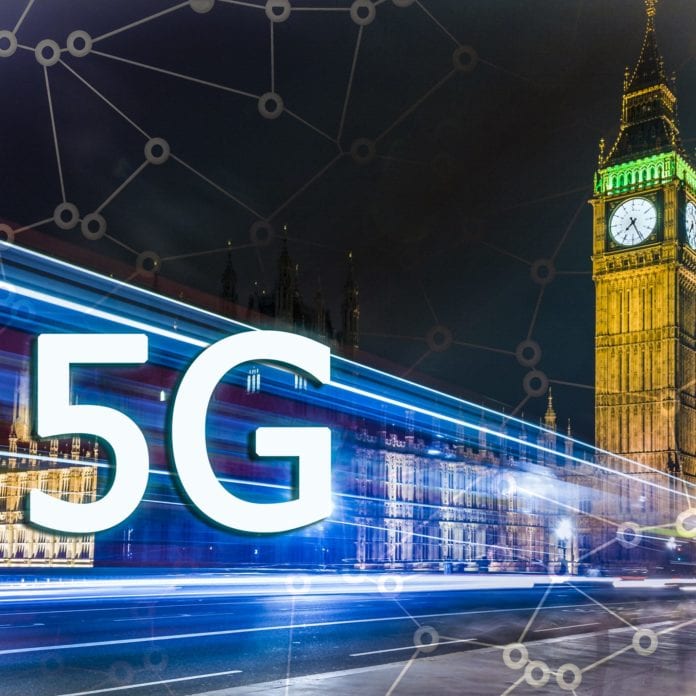The telco is also using 3G spectrum to boost 4G signals at 500 sites across the country
U.K. mobile operator EE, owned by BT Group, announced plans to launch commercial 5G services in 2019.
The carrier also said it will use 2100 MHz bandwidth, currently used for 3G, to boost 4G signals at 500 mobile towers located in the busiest parts of EE’s network, including London, Birmingham, Manchester, Bristol, Exeter, Hull, Nottingham, Edinburgh, Glasgow, Cardiff and Belfast.
EE said the additional spectrum will enable it to offer five-band carrier aggregation (5CA) to improve speeds and capacity.
EE will switch on its 5G network in 2019. 5G sites will be built on top of the upgraded sites with the maximum amount of 4G spectrum, in the busiest areas, the carrier said.
“Our customers want a fast and reliable 4G connection, and that’s what we’re working to give them. We are using the investment we made in 3G spectrum nearly 15 years ago to give customers today a great experience with the latest smartphones on 4G, and build our foundation for 5G in 2019. We’re constantly evolving, and the customer experience of 5G will be dictated by the quality of the 4G network underneath,’ Marc Allera, CEO of BT’s Consumer business, said.
In June, EE announced plans to launch what it claims to be the U.K.’s first live 5G trial network in East London in October. That involves connecting 10 sites around East London in areas including City Road, Old Street, Hoxton Square, St Paul’s and Chiswell Street. Five small businesses and five homes will be connected to 5G, using prototype 5G broadband devices.
EE said it aims to deliver live speeds in excess of one gigabit per second with this first 5G trial in London.
Earlier this year, U.K. telcos obtained spectrum for the future provision of 5G services. BT-owned EE won 40 megahertz for which it paid £303 million ($394 million). Three secured 20 megahertz of 3.4 GHz spectrum at a cost of £151.3 million. Vodafone won 50 megahertz of spectrum in the 3.4GHz frequency band after paying £378 million, while Telefónica-owned O2 picked up 40 megahertz for £318m.
The U.K. government had previously allocated £25 million in new funding to six 5G pilots across the country. The six projects are run by small and medium sized enterprises (SMEs), universities and local authorities. The pilots will each help to pave the way for the roll out of 5G technology in the coming years, the government said.
The selected pilots will test 5G across a range of applications, including smart farming with drones, using the internet of things (IoT) to improve healthcare in the home, increasing manufacturing productivity and maximizing the future benefits of self-driving cars.

